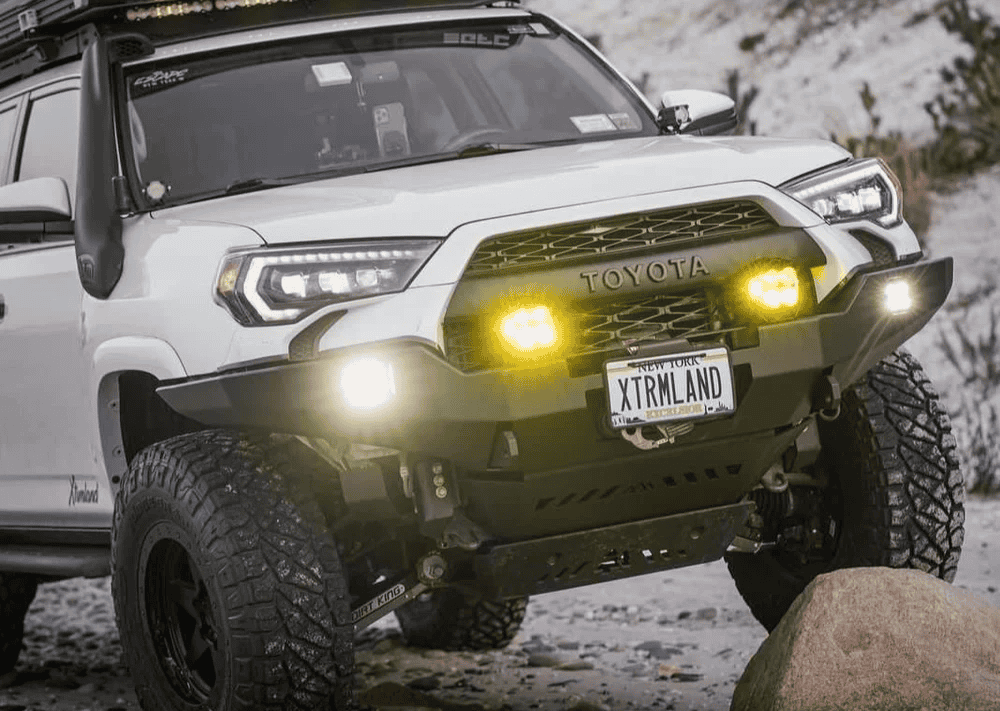Overland Vehicles

Range matters the moment pavement gives way to washboard and rock. The most fuel efficient off road cars prove you do not have to sacrifice capability to travel farther. It starts with the basics: adequate ground clearance, durable suspension, and a torque curve that works at low speed. Keep lift height measured, because every extra inch increases aerodynamic drag and raises the center of gravity. Choose wheels with sensible diameter to avoid heavy rotating mass, because rotating weight punishes mpg more than static weight.
A good gas mileage off road vehicle relies on traction more than brute power. Lockers and traction control let you move slowly rather than flooring the throttle. Momentum should be intentional, not chaotic; carrying the right pace up a climb uses less fuel than repeated stops and hard throttle bursts. Air down within safe limits, which lengthens the contact patch and reduces wheelspin. Recovery gear is essential, but carry only what you truly use, since every pound shortens your range.
Powertrains with broad low end torque keep revs low and fuel burn down. Pair that with all terrain tires in moderate widths; wide, aggressive lugs add rolling resistance and drag. Unsprung weight from steel wheels and massive tires stacks up quickly, so consider lighter alloys in proper load ratings. Roof racks, light bars, and external boxes add wind resistance; mount only what is needed and keep the roofline clean when possible. Smart weight discipline across the vehicle transforms miles per gallon off road.
Modern gas turbo fours and sixes, clean diesel options, and emerging hybrid systems all have a place. For slow technical travel, the best mpg off road vehicle often has gearing that keeps the engine in a fat torque band at low speed. A mild tune focused on drivability, not peak output, helps. Hybrids can shine in stop and crawl situations by blending electric assistance with engine torque, while efficient diesels deliver steady pull at low rpm on long grades. Whatever you choose, avoid oversizing components that add mass without real trail benefit.
Tire selection is your daily decision with the biggest mpg impact. Mud terrain tread looks purposeful, but on most mixed terrain a modern all terrain provides the traction you need with far less rolling resistance. A narrower tire can cut through loose surfaces while reducing frontal area. Maintain a precise tire pressure strategy: air down on trail for grip and comfort, then air up for transit sections to protect sidewalls and restore efficiency. Carry an accurate gauge and compressor to make pressure changes routine, not rare.
Technique saves fuel. Steady throttle, early upshifts, and looking far ahead reduce needless braking and acceleration. Use low range when it prevents lugging or wheelspin. Plan routes that avoid repeated backtracking, and stage camp near key trail systems to cut daily transit miles. Consider altitude, wind, and temperature in your range math, because headwinds and cold dense air increase consumption even on easy dirt.
Off road mpg is not a fixed number; it swings with terrain, load, and driving style. Expect a spread from highway ratings down to half that value on soft sand or steep rock. That is why best off road vehicle with good mpg is not just a badge, it is a system. Calibrate your odometer after changing tire size using GPS so your range math is honest. Track gallons added and miles covered to know your real baseline.
Pack water and fuel based on the route, not guesswork. Extra cans are useful, but carrying more than needed forces the engine to work harder. Use collapsible containers and refill smartly at known stops. Keep the engine breathing well with a clean filter, confirm alignment after impacts, and monitor wheel bearings, as friction losses show up first in fuel use before a failure ever occurs. The most efficient rigs treat maintenance as range insurance.
True efficiency blends capability with restraint. Vehicles that run modest lift heights, moderate tire sizes, balanced gearing, and light thoughtful builds consistently perform well. In that mix you will find the fuel efficient off road cars many travelers champion: simple, durable, and set up to conserve energy on every mile.
To turn this theory into reality, your build choices matter as much as the base platform. Lightweight interiors, compact but capable power systems, and aerodynamic storage solutions preserve mpg while improving trail comfort. That balance is what separates a weekend struggle from a smooth multi day traverse.
Build choices are personal, but you do not have to navigate them alone. If you want help tailoring a rig for range and reliability, explore our approach to overland rigs that pair capability with efficiency. See how a custom overland upfit can combine tire strategy, suspension tuning, and smart storage that aligns with your travel style. Curious about our process and results others have experienced? Start with Why choose OZK Customs to see how we build for real world miles.
You have learned how to pick and drive the best mpg off road vehicle, from tire choice to trip planning. Now let us apply those principles to your build. At OZK Customs we design and deliver efficient rigs that hold their line on rough tracks and stretch every gallon. Share your travel goals and we will spec tires, gearing, power, and storage that fit your routes, not a catalog. When you are ready to cover more ground with less fuel, we are ready to build.
Ready for an efficient overland build that can go farther on every gallon? Tell us how you travel, and we will design a lighter, smarter setup with the right tires, gearing, and power system. Start your custom plan today and let OZK Customs turn your range goals into real miles.
ADDRESS:
6159 E Huntsville Rd, Fayetteville, AR 72701
PHONE:
(479) 326-9200
EMAIL:
info@ozkvans.com